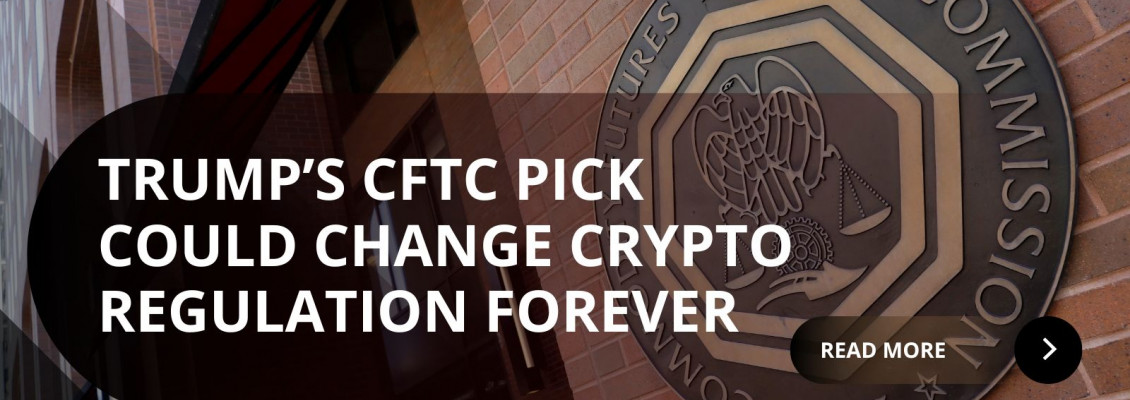
Trump Appoints Pro-Crypto Lawyer Michael Selig to Lead the CFTC
A new chapter for U.S. crypto regulation
President Donald Trump has nominated Michael Selig to serve as Chair of the U.S. Commodity Futures Trading Commission (CFTC). The move marks one of the clearest signals yet that the administration intends to take a pro-innovation approach toward digital assets.
If confirmed by the Senate, Selig would succeed acting Chair Caroline Pham and lead one of the key federal agencies overseeing U.S. derivatives and crypto markets. His background in crypto policy and law positions him as a potential bridge between the CFTC and the Securities and Exchange Commission (SEC), which have often clashed over digital asset oversight.
Who is Michael Selig
Michael Selig currently serves as Chief Counsel for the SEC’s Crypto Task Force, where he has played a central role in shaping digital asset policy. Before joining the SEC, Selig worked at the law firm Willkie Farr & Gallagher, focusing on fintech and blockchain regulation. Earlier in his career, he interned at the CFTC, giving him firsthand insight into how the agency functions.
Throughout his career, Selig has been recognized for his deep understanding of both traditional finance and emerging crypto ecosystems. He is considered one of the few U.S. legal experts who can navigate the complex line between securities and commodities law as it applies to digital assets.
Why This Matters
The appointment sends a strong signal that the administration aims to modernize U.S. financial regulation. Selig is known for supporting clear, innovation-friendly frameworks rather than strict enforcement-first approaches.
For years, crypto companies and investors have criticized U.S. regulators for sending mixed messages about what counts as a security versus a commodity. The result has been uncertainty that stifled innovation and pushed some firms overseas. With Selig at the helm, the CFTC may seek to provide clarity while fostering responsible growth in digital markets.
The nomination also reflects a broader shift in Washington. Rather than treating digital assets purely as a threat, policymakers appear to be viewing blockchain technology as an opportunity for U.S. leadership in global finance.
What to Watch
The next step for Selig will be Senate confirmation, a process that could include tough questioning about his crypto-friendly stance. Lawmakers are divided on how much authority the CFTC should have over digital assets, and Selig’s confirmation could become a flashpoint in the broader debate over crypto regulation.
If approved, his leadership could influence key policy areas, including:
-
CFTC-SEC Coordination: Efforts to align rules between the two agencies and reduce regulatory overlap.
-
Market Structure Reform: Defining how tokens, stablecoins, and decentralized finance products are classified.
-
Industry Engagement: Building formal channels for dialogue between regulators and blockchain innovators.
-
Global Competitiveness: Positioning the U.S. as a leading market for compliant digital asset innovation.
The Bigger Picture
Selig’s nomination comes at a pivotal time for crypto policy. Congress is considering new legislation that could expand or clarify the CFTC’s jurisdiction over digital assets. Having a chair who understands both the technology and the law could make a major difference in how those rules are implemented.
The crypto industry has responded positively, viewing Selig as someone who can combine pragmatic regulation with a commitment to innovation. However, optimism is tempered by the reality that new leadership alone will not resolve all challenges. Effective reform will still require interagency cooperation, clear legislative backing, and strong consumer protections.
Final Thoughts
Michael Selig’s appointment represents more than just a personnel change. It could mark the start of a new era for U.S. crypto policy, where innovation and regulation are not seen as opposing forces.
If confirmed, Selig will face the challenge of turning a fragmented regulatory landscape into one that encourages growth while maintaining market integrity. His success will depend on balancing ambition with accountability, and on ensuring that the U.S. remains both competitive and credible in the global digital economy.

Leave a Comment